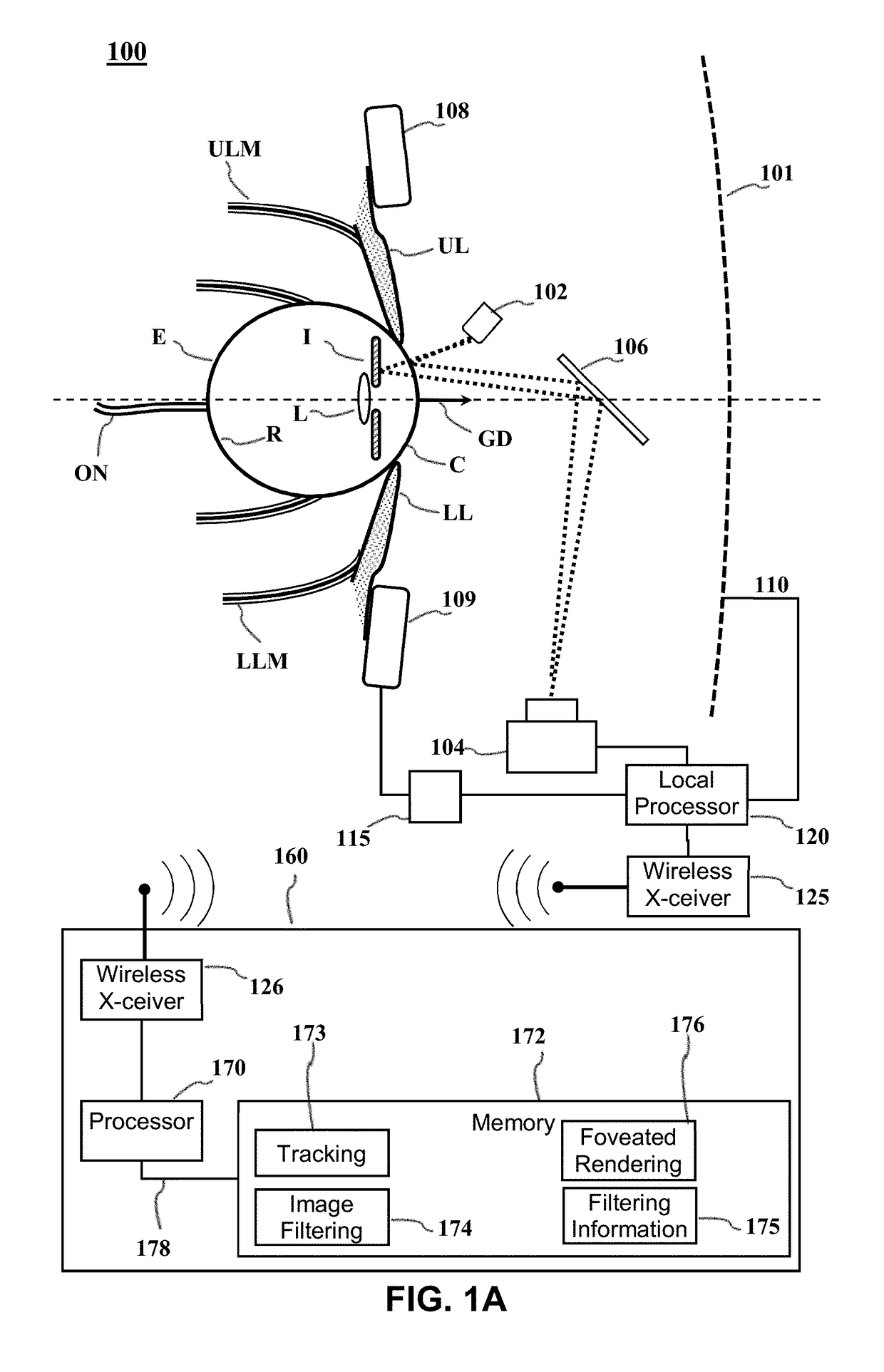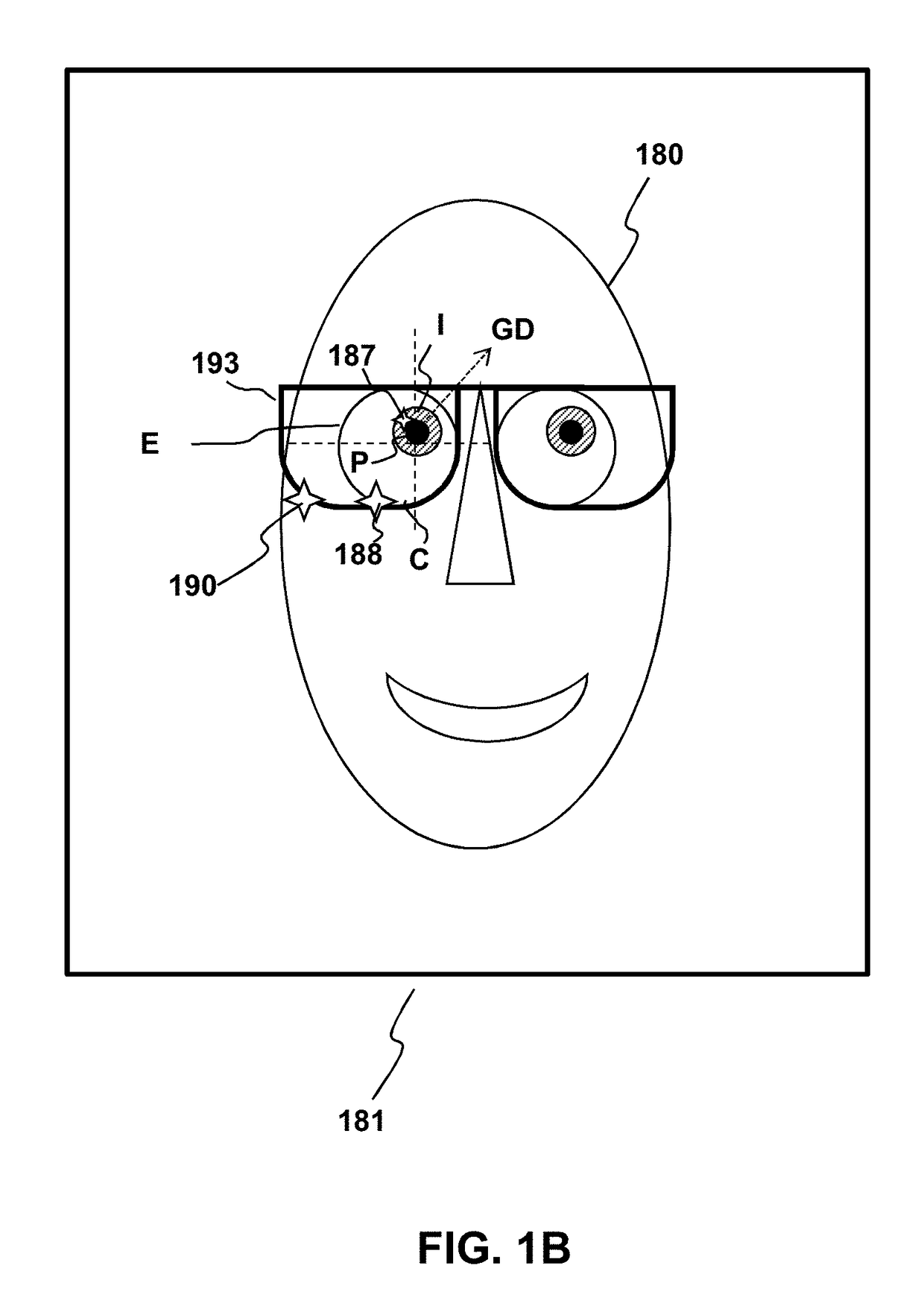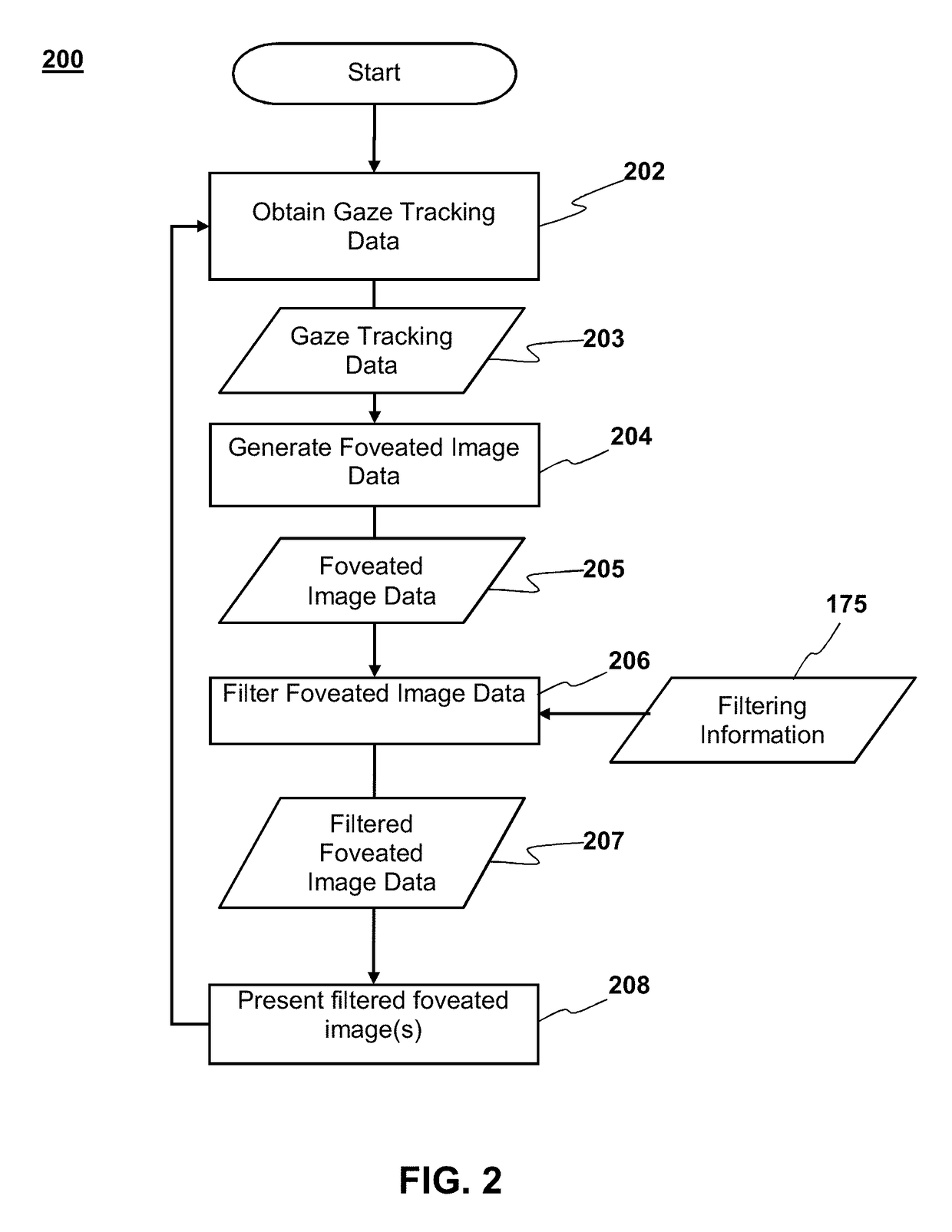Selective peripheral vision filtering in a foveated rendering system
a peripheral vision and filtering technology, applied in the field of digital graphics, can solve the problems of human vision, foveated rendering techniques, and common foveated rendering techniques
- Summary
- Abstract
- Description
- Claims
- Application Information
AI Technical Summary
Benefits of technology
Problems solved by technology
Method used
Image
Examples
Embodiment Construction
[0020]Although the following detailed description contains many specific details for the purposes of illustration, anyone of ordinary skill in the art will appreciate that many variations and alterations to the following details are within the scope of the invention. Accordingly, the illustrative implementations of the present disclosure described below are set forth without any loss of generality to, and without imposing limitations upon, the claimed invention.
INTRODUCTION
[0021]Although a foveated rendering process can reduce system overhead and power usage, problems can arise as a result of the nature of human vision. Foveated rendering techniques typically reduce the resolution or visual fidelity of peripheral portions of images delivered to a display, e.g., an HMD. Human peripheral vision is finely tuned to contrast and motion detection. Reducing resolution in peripheral region may increase contrast, which can lead to visual artifacts, such as aliasing and scintillation of pixel...
PUM
 Login to View More
Login to View More Abstract
Description
Claims
Application Information
 Login to View More
Login to View More - R&D
- Intellectual Property
- Life Sciences
- Materials
- Tech Scout
- Unparalleled Data Quality
- Higher Quality Content
- 60% Fewer Hallucinations
Browse by: Latest US Patents, China's latest patents, Technical Efficacy Thesaurus, Application Domain, Technology Topic, Popular Technical Reports.
© 2025 PatSnap. All rights reserved.Legal|Privacy policy|Modern Slavery Act Transparency Statement|Sitemap|About US| Contact US: help@patsnap.com



